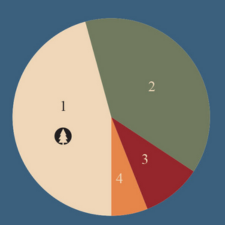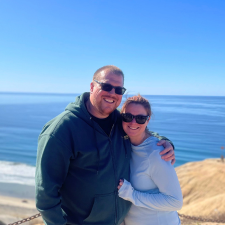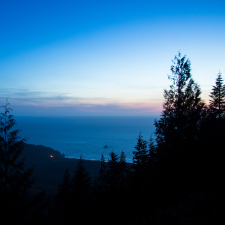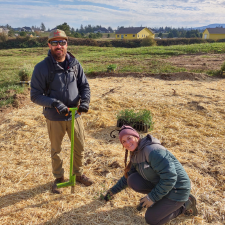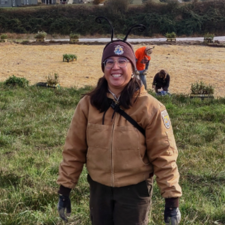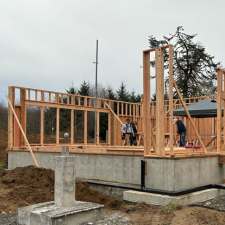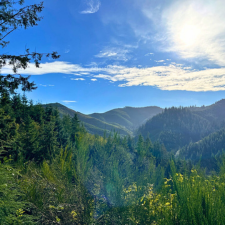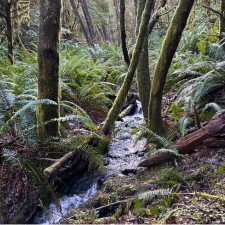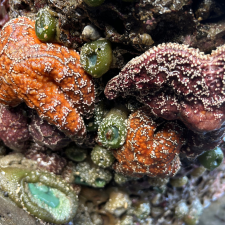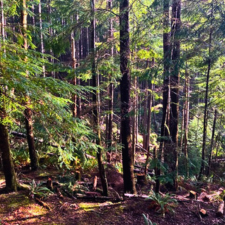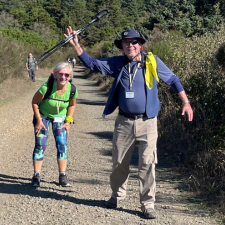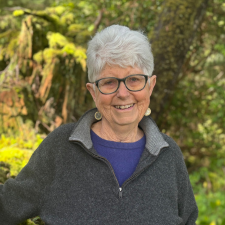Annual Report 2023
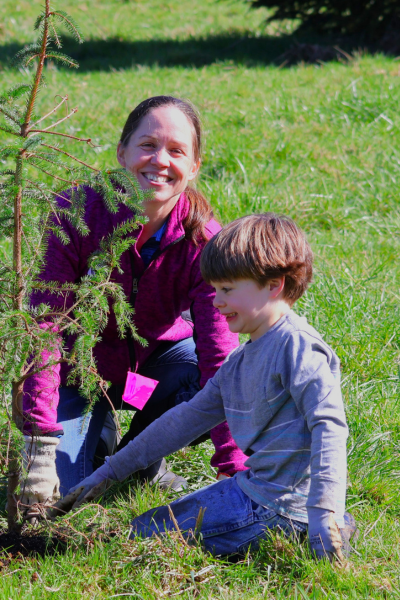
Protecting the Place We Call Home
Dear friends,
One of the coolest new things happening at NCLC is our work in the marine zones, particularly with the Cape Falcon Marine Reserve. That means when you support NCLC, you’re now participating in direct protection of everything in the region, from giant cedars deep in the mountains of the Coast Range to giant green anemones!
Recently, I’ve been enthralled with the marine environment. It’s such a long-lived world. Take giant green anemones, for instance. They can live up to 150 years, and they’re “sessile,” which means they rarely move from the spot where they attach early in life. They find a place and make it their home.
There’s so much perspective we can gain by paying attention to this place, where land meets the sea. And a deeper understanding of why we conserve it. When we consider how nature functions, it’s not about the next new, flashy thing. Certainly, evolution and adaptation occurs, but what we witness more predominantly in nature is continuity: patterns, seasons, and cycles. It’s continuity that supports the idea of forever.
That’s what we’re committed to at NCLC: Doing the seemingly small things each day that amount to caring for thousands of acres of conserved habitat on a regular basis.

So the giant green anemone can keep their home. So the black bear in the Rainforest Reserve can keep their home. So the eagles that nest in the trees can keep their home. So we, too, can keep our home.
We’ll continue preserving and caring for it all at a steady, continuous pace, day in and day out.
With love,

Katie Voelke
Executive Director
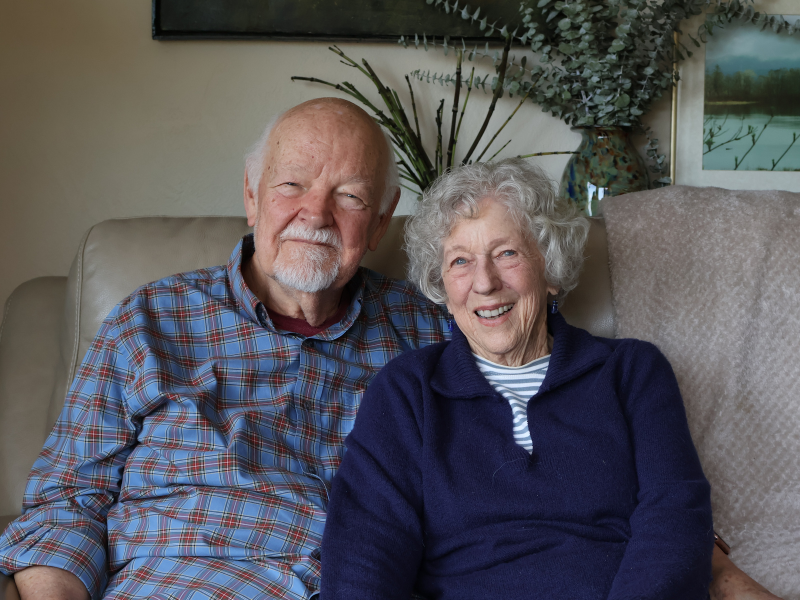
With Great Love, Comes Great Responsibility: Supporting Conservation on the Oregon Coast
Jan Mitchell and Roger Rocka have called the Oregon Coast home for 30 years, and there is a lot they love about it. The small-town energy (having both grown up in larger cities). The ocean and forests. The myriad of hiking opportunities. The fact that you can travel in any direction and find an abundance of natural beauty.
With that love, however, comes an urgent sense of responsibility to support and care for this region and all who depend on it. Both have volunteered and served in various civic capacities and with nonprofit organizations. Both were active in the No LNG movement for about a dozen years. Both have testified on the Oregon Department of Forestry’s Habitat Conservation Plan. And they’re both longtime supporters of North Coast Land Conservancy.
“We’re enmeshed in our environment,” Roger says.
Jan adds, “The state is so beautiful, and the forest is so pivotal in how we deal with what’s happening in the world. It’s hard, for me, to not get stirred up about it.”
They were introduced to NCLC in the mid-1990s, when Neal Maine was the founding executive director. At that point, the organization had only completed a couple of small projects in Seaside.
Although they were hopeful and invested in NCLC’s vision, “I don’t think we ever imagined that it would be as successful as it has been,” Roger says. He appreciates the conservancy’s efforts to acquire contiguous land for habitat along the Oregon Coast, from the Columbia River to the Siletz Bay. “[They’ve] done a remarkable job from a small, modest start.”
Roger sees contributing to NCLC as a worthwhile investment into a mission that benefits not only humans, but other living creatures as well. It’s coupled with a deep understanding that “forests are more than a crop of trees,” Jan says. They are complex systems that support a diversity of life, provide clean air and water, and contribute to the health and well-being of all.
Jan Mitchell, NCLC Supporter
“There is just so much that needs to be done. It takes everybody seeing that as significant and worth spending their timey and money on. … People locally have to care. It affects us all.”
As a city planner in Fresno for 25 years, Jan has a unique perspective on the need for making decisions and taking actions with an eye on the future and long-term outcomes. That sort of thinking requires one to “develop a sense of how things work together” and “what needs to be done if you’re trying to change things.” Conservation is one of those things.
It is an opportunity to protect valuable natural systems that once were much more prevalent in what’s now the United States, including the forests and wetlands.
“What the land conservancy is doing is so essential because it’s preserving something of what was once everything,” Roger says. As someone who loves the outdoors, he is acutely aware of the relationship between humans and their surrounding environment. “Being in the woods is kind of a thing that restores balance to your psyche. The sounds, and the silence, and the smells, and the critters.”
Both he and Jan expressed appreciate for the “first-class environmental organizations” operating on the coast, including NCLC, Columbia Riverkeeper, and the Columbia River Estuary Study Taskforce (CREST), to name a few. The leadership and initiative of these organizations cultivates tangible missions and actions for coastal communities to rally around.
“There is just so much that needs to be done,” Jan says. “It takes everybody seeing that as significant and worth spending their time and money on. … People locally have to care. If affects all of us.”

